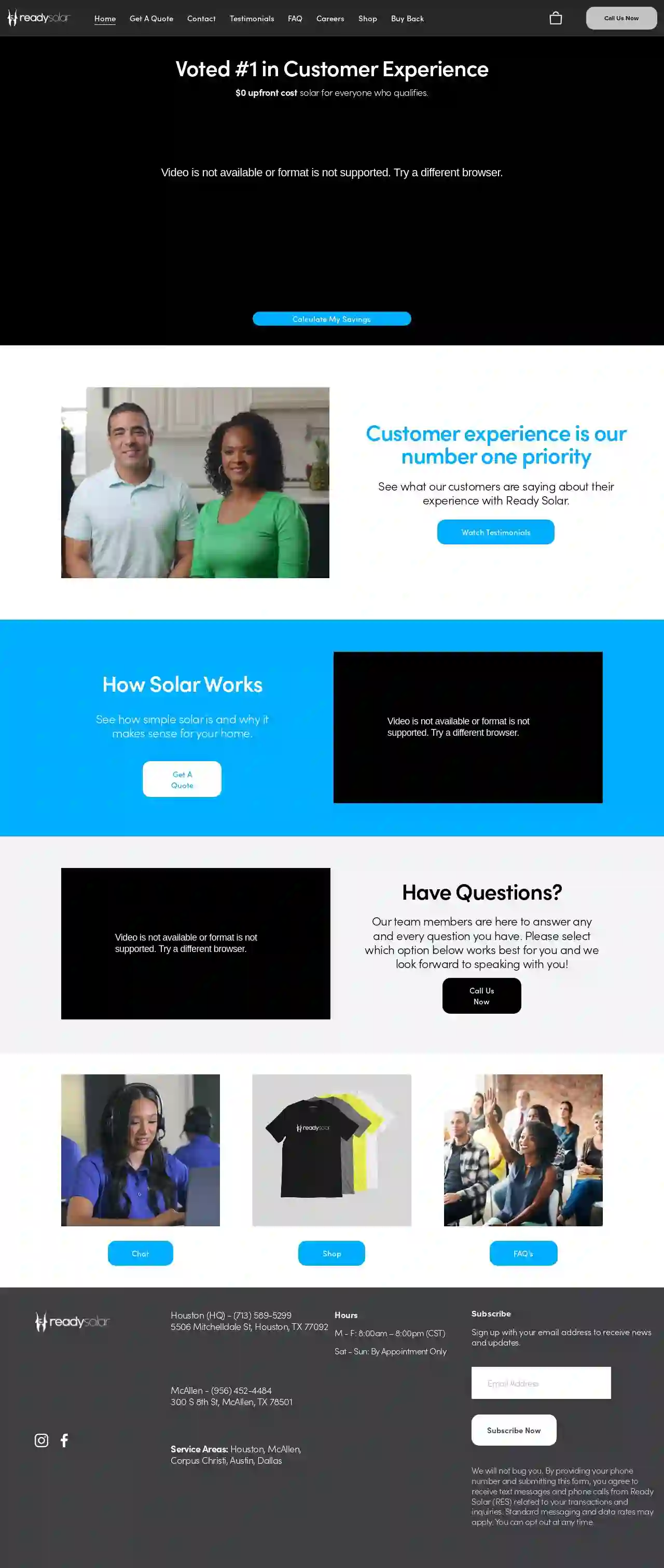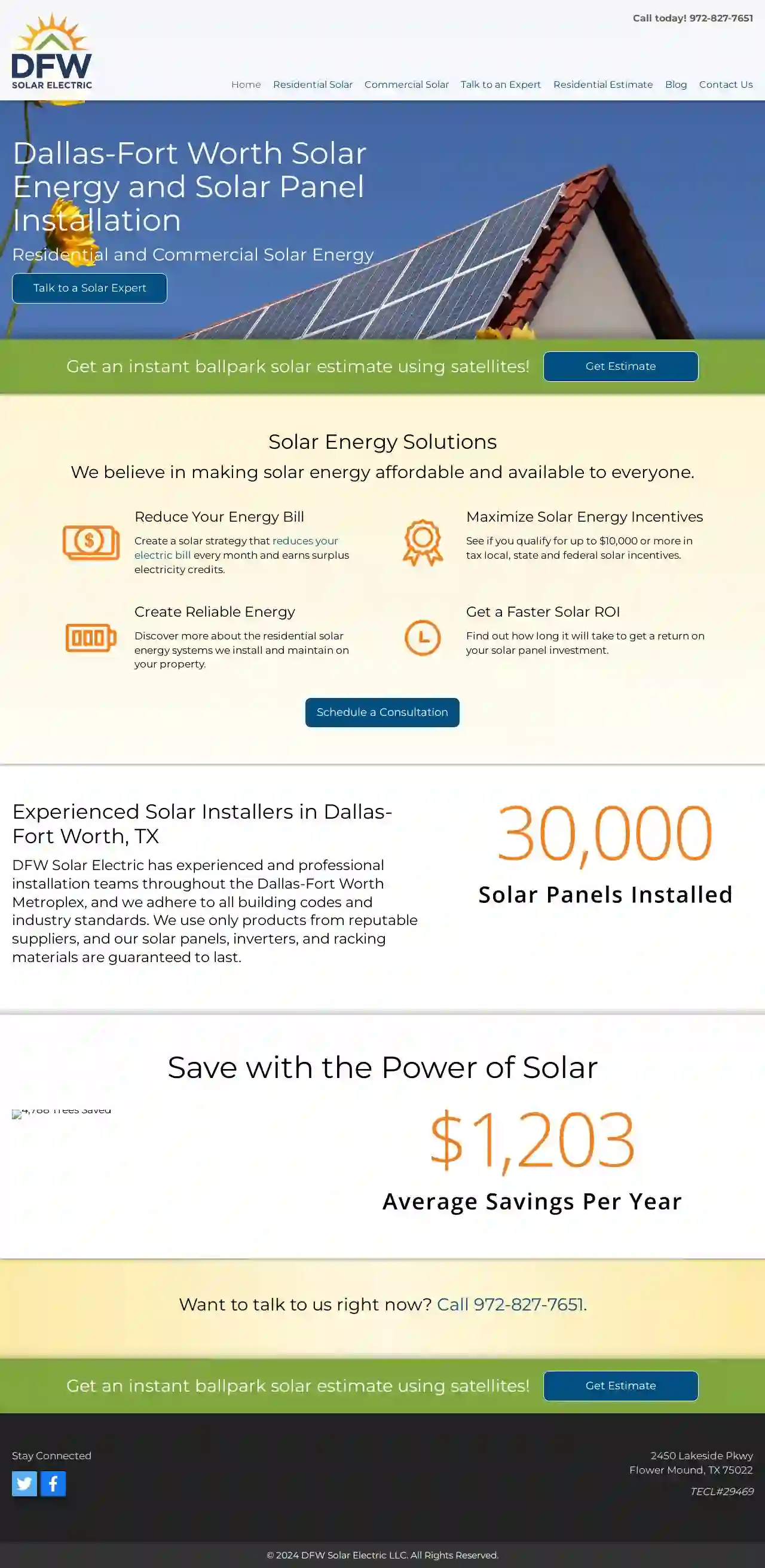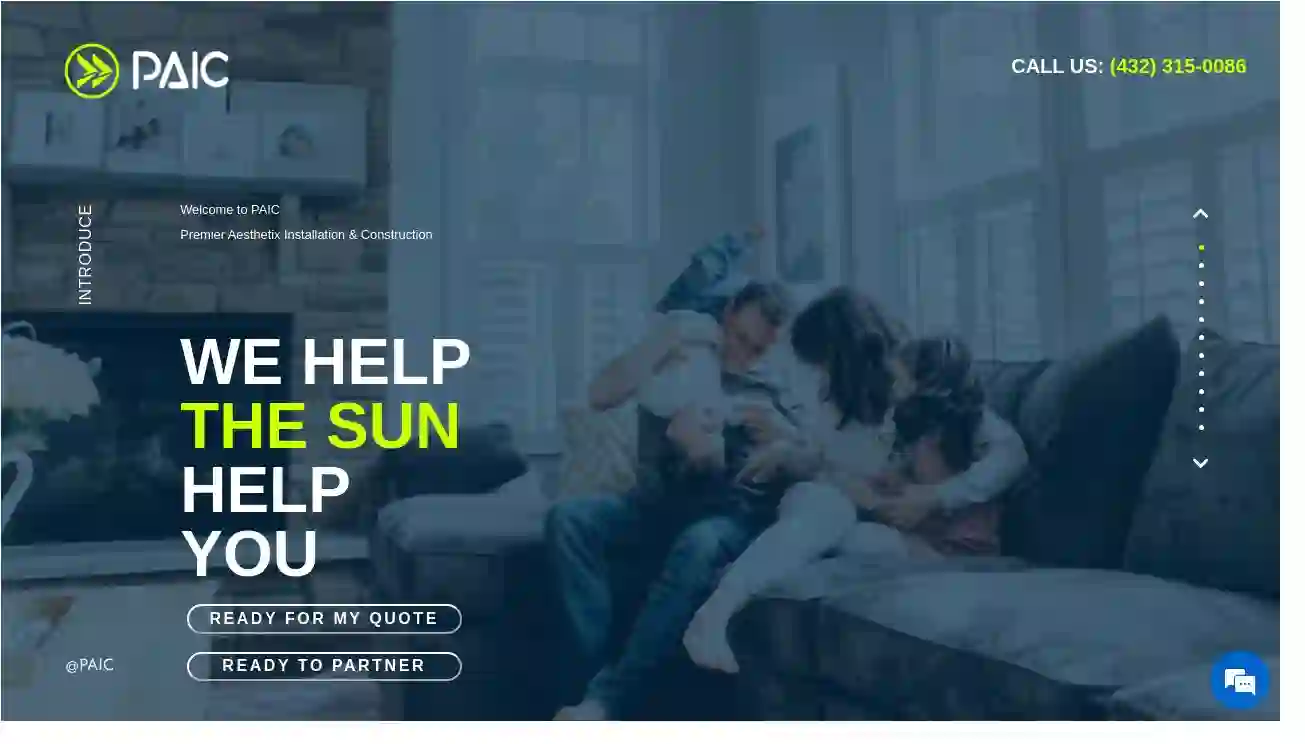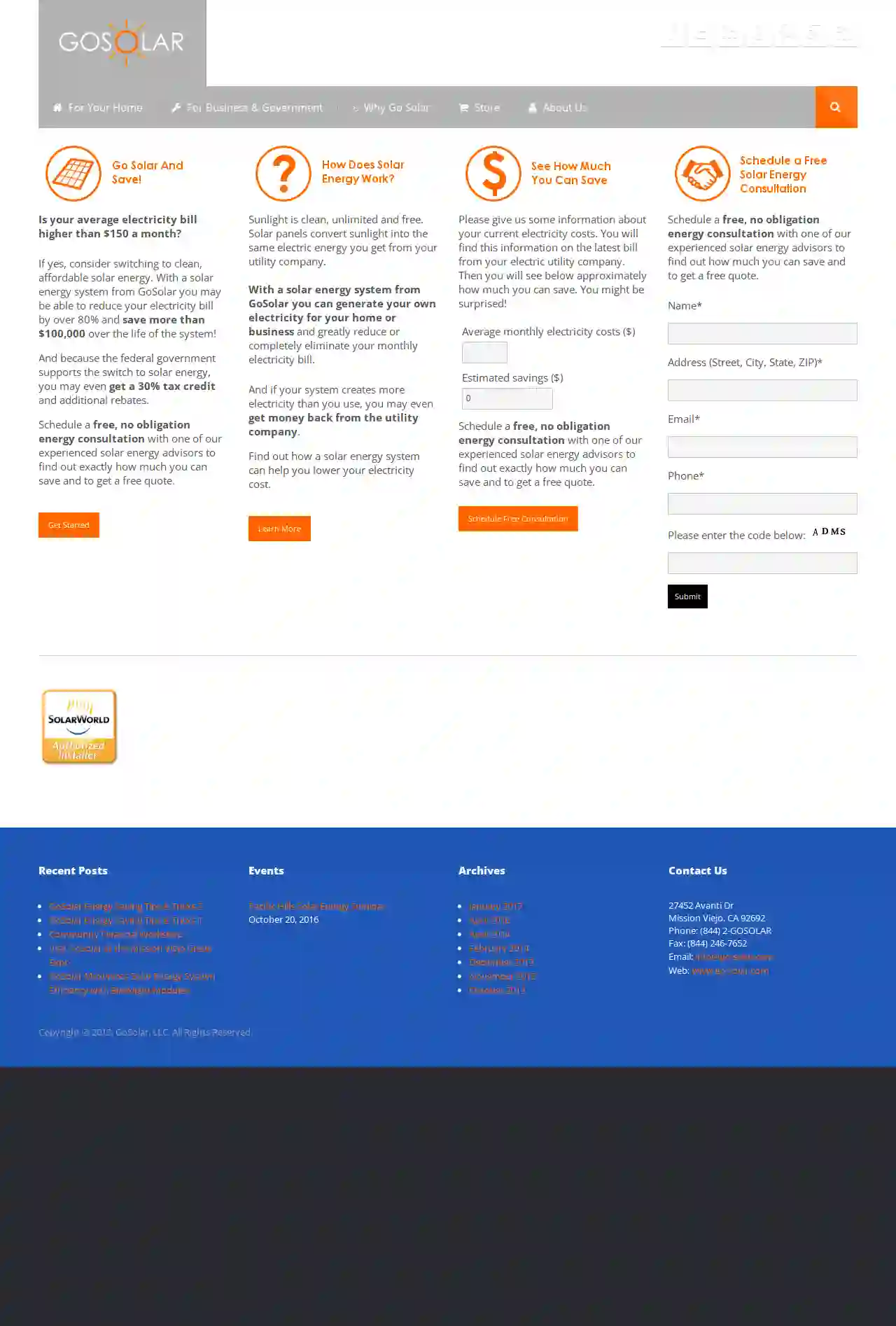Solar Installers River Oaks
Find top Solar Companies in River Oaks
Get 3 FREE Solar Contractors quotes for your project today! Compare profiles, reviews, accreditations, portfolio, etc... and choose the best deal.

West Texas Solar
4.933 reviews40474 E. Overland Trail, Abilene, 79601, USWest Texas Solar is a local business that specializes in providing custom solar energy systems and solar panels in Abilene, Texas. They cater to residential homes, commercial businesses, and off-grid locations. Their team of professional engineers can design the ideal solar panel system to meet specific requirements efficiently. They take great pride in their craftsmanship and have unmatched, high-quality customer service.
- Services
- Why Us?
- Accreditations
- Our Team
- Testimonials
- Gallery
Get Quote
Dynamic SLR Warehouse
4.362 reviews1140 International Pkwy, Richardson, TX 75081, 75081, USSynaptic Solar is a premier electrical contractor committed to forming partnerships that help expand our clients operational capabilities all over Texas. We offer the most competitive pricing on solar installation services. Our crews are led by skilled project managers with electrical construction experience and adhere to OSHA protocols. Let our experienced team members oversee to completion any size system Commercial and Residential.
- Services
- Why Us?
- Accreditations
- Our Team
- Testimonials
- Gallery
Get Quote
Longhorn Solar - Austin
4.4167 reviewsAustin, TX, 123 Solar Way, 78701, USLonghorn Solar is a leading residential and commercial solar company in Texas, delivering the best solar experience in Austin, San Antonio, Houston, Dallas / Fort Worth TX. We offer advanced and affordable solar panels that produce at high levels, paying for themselves. Our solar systems come with 0% down financing through our partners, 25-year performance and workmanship warranties, and local solar support to ensure peak performance.
- Services
- Why Us?
- Accreditations
- Our Team
- Testimonials
- Gallery
Get Quote
Ready Solar
515 reviews5506 Mitchelldale St, Houston, 77092, USReady Solar is a leading provider of solar energy solutions, offering a range of services to help homeowners and businesses transition to renewable energy. With a focus on customer experience, Ready Solar provides comprehensive support throughout the entire process, from initial consultation to installation and maintenance. Their team of experts is dedicated to ensuring that clients receive the best possible service and maximum savings from their solar investment.
- Services
- Why Us?
- Accreditations
- Our Team
- Testimonials
- Gallery
Get Quote
Integrity Solar USA
53 reviews196 Silver Lakes Dr, Sunset, TX 76270, 76270, USIntegrity Solar USA is a locally-owned and operated business based in the North Texas area. With over 20 years in the energy and solar consulting field, we have the knowledge and experience to deliver our customers the highest level of service available. We offer everything when it comes to solar. We can sell it, install, and maintain the panels for you! Contact us today to schedule a free estimate and evaluation of your home!
- Services
- Why Us?
- Accreditations
- Our Team
- Testimonials
- Gallery
Get Quote
Independent Energy Hawaii
562 reviews1200 Ala Moana Blvd. #380, Honolulu, 96814, USIndependent Energy Hawaii is a locally owned and operated electrical contracting company dedicated to solar installations, smart home upgrades, and system maintenance. With over 2,000 installations across all islands in Hawaii, the company is committed to safety and customer satisfaction. Their 5-step process ensures a smooth and easy solar journey for clients.
- Services
- Why Us?
- Accreditations
- Our Team
- Testimonials
- Gallery
Get Quote
DFW Solar Electric
4.914 reviewsFlower Mound, TX, 2450 Lakeside Pkwy, 75022, USDFW Solar Electric is a leading provider of solar energy solutions in the Dallas-Fort Worth area. They offer residential and commercial solar panel installations, aiming to make solar energy affordable and accessible to everyone. Their services include reducing energy bills, maximizing solar energy incentives, creating reliable energy, and providing a faster return on investment for solar panel installations.
- Services
- Why Us?
- Accreditations
- Our Team
- Testimonials
- Gallery
Get Quote
Premier Solar Texas
3.456 reviewsBeverly Hills, CA, 123 Solar Way, 90210, USPAIC Solar is a leading provider of solar energy solutions, dedicated to helping homeowners and businesses reduce their carbon footprint and save on energy costs. With a team of experienced professionals and a commitment to quality, PAIC Solar offers a range of services including solar panel installation, maintenance, and repair. Their mission is to make solar energy accessible and affordable for everyone, while promoting a sustainable future.
- Services
- Why Us?
- Accreditations
- Our Team
- Testimonials
Get Quote
My Roof Solar
446 reviews123 Main St, Suite 100, Plano, 75075, USWelcome to America’s favorite solar and roofing company, where we vow to provide the best customer service and quality in the industry. Our multi-state company specializes in solar installation, storm restoration, and remodeling.
- Services
- Why Us?
- Accreditations
- Our Team
- Testimonials
- Gallery
Get Quote
GoSolar
32 reviews27452 Avanti Dr, Mission Viejo, CA 92692, 92692, USGoSolar is a company that specializes in providing solar energy solutions for homes and businesses. They offer a range of services including solar energy consultations, energy efficiency audits, and solar panel cleaning. Their mission is to help customers reduce their electricity bills by switching to clean, affordable solar energy. They also provide a customer referral program and offer a 30% tax credit and additional rebates for those who switch to solar energy.
- Services
- Why Us?
- Accreditations
- Our Team
- Testimonials
- Gallery
Get Quote
Over 4,210+ Solar Installers onboarded
Our solar companies operate in River Oaks and surroundings!
SolarCompaniesHub has curated and vetted Top Solar Installers in River Oaks. Find a trustworthy contractor today.
Frequently Asked Questions About Solar Installers
- Tax Credits: Reduce your income tax liability based on the cost of your solar system.
- Rebates: Direct cash payments or discounts on the purchase of a solar energy system.
- Net Metering: Allows you to sell excess solar electricity back to the grid for credits.
- Renewable Energy Certificates (RECs): Tradeable credits representing the environmental attributes of your solar energy generation.
What happens to my solar panels during a power outage?
Are there any financial incentives for going solar?
How do solar panels work?
Do solar panels increase my home value?
What happens to my solar panels during a power outage?
Are there any financial incentives for going solar?
- Tax Credits: Reduce your income tax liability based on the cost of your solar system.
- Rebates: Direct cash payments or discounts on the purchase of a solar energy system.
- Net Metering: Allows you to sell excess solar electricity back to the grid for credits.
- Renewable Energy Certificates (RECs): Tradeable credits representing the environmental attributes of your solar energy generation.